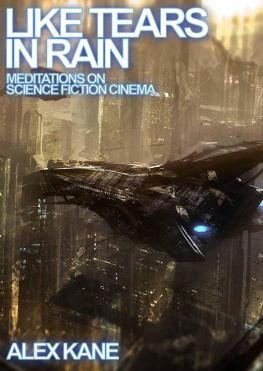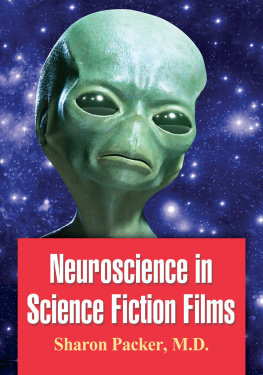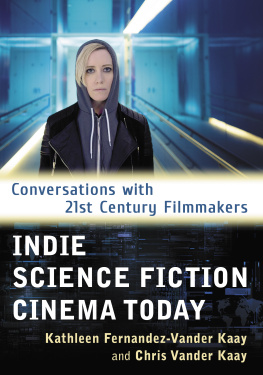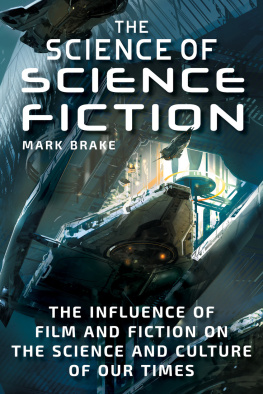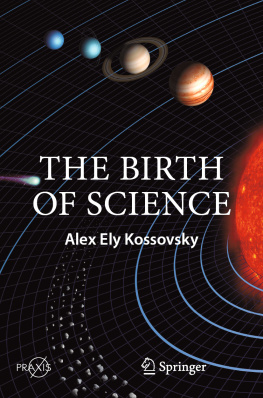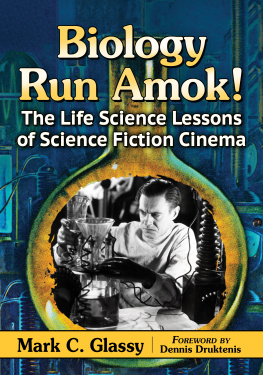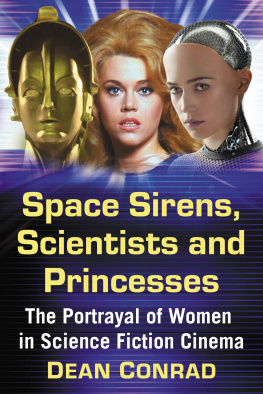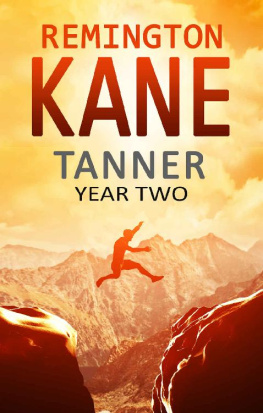Alex Kane - Like Tears in Rain: Meditations on Science Fiction Cinema
Here you can read online Alex Kane - Like Tears in Rain: Meditations on Science Fiction Cinema full text of the book (entire story) in english for free. Download pdf and epub, get meaning, cover and reviews about this ebook. year: 2014, genre: Detective and thriller. Description of the work, (preface) as well as reviews are available. Best literature library LitArk.com created for fans of good reading and offers a wide selection of genres:
Romance novel
Science fiction
Adventure
Detective
Science
History
Home and family
Prose
Art
Politics
Computer
Non-fiction
Religion
Business
Children
Humor
Choose a favorite category and find really read worthwhile books. Enjoy immersion in the world of imagination, feel the emotions of the characters or learn something new for yourself, make an fascinating discovery.
- Book:Like Tears in Rain: Meditations on Science Fiction Cinema
- Author:
- Genre:
- Year:2014
- Rating:3 / 5
- Favourites:Add to favourites
- Your mark:
- 60
- 1
- 2
- 3
- 4
- 5
Like Tears in Rain: Meditations on Science Fiction Cinema: summary, description and annotation
We offer to read an annotation, description, summary or preface (depends on what the author of the book "Like Tears in Rain: Meditations on Science Fiction Cinema" wrote himself). If you haven't found the necessary information about the book — write in the comments, we will try to find it.
Alex Kane: author's other books
Who wrote Like Tears in Rain: Meditations on Science Fiction Cinema? Find out the surname, the name of the author of the book and a list of all author's works by series.
Like Tears in Rain: Meditations on Science Fiction Cinema — read online for free the complete book (whole text) full work
Below is the text of the book, divided by pages. System saving the place of the last page read, allows you to conveniently read the book "Like Tears in Rain: Meditations on Science Fiction Cinema" online for free, without having to search again every time where you left off. Put a bookmark, and you can go to the page where you finished reading at any time.
Font size:
Interval:
Bookmark:
Like Tears in Rain
Meditations on Science Fiction Cinema
Alex Kane
Introduction
The essays that follow were written out of a love for science fiction in all its forms: on film, in fiction, in video games, in comics. They were written neither for money nor as a means of declaring myself some kind of self-appointed expert on the genre. Many of them appeared for the first time in Amazing Stories , the worlds very first science fiction magazine, while others are original to this volumebut each and every one of them has been revised and expanded for the sake of remaining timely. Science fiction has a hard time keeping up with the world, though, for many of us, it stands ageless and forever relevant in our hearts, a constant beacon of youthful exuberance and wonder at the full breadth of the universe.
I hope youll enjoy my various explorations of the big-screen myths sf has given us in recent years. Imperfect though they sometimes are, I believe that seeing worlds beyond our own brought to life in a way thats both visible and readily accessible to the next generation of readers, dreamers, and creators is vital to keeping not only the written literature alive, but also to the mission of scientific discovery that is so often forgotten in this age of hardship and cynicism.
Whether or not topics like transhumanism and interstellar flight ought to be among our most immediate social concerns is something I leave up to the reader. But I will say this: Tomorrow is coming sooner than we may think, and science fiction gives us a vast canvas for exploring its various challenges and questions from the relative safety of our imaginations, long before we are forced to face them in reality.
So: if the future is Skynet, then science fiction is a kind of T-850a Cyberdyne Systems Model 101, reprogrammed with a more benevolent temperament and sent back in time to warn us about the various Bradburian follies well inevitably make as our species advances.
(I use this last term in its loosest possible sense.)
Alex Kane
Galesburg, Illinois
April 11, 2014
Like Tears in Rain
An essay on Ridley Scotts 2007 rerelease of Blade Runner: The Final Cut on Blu-ray Disc
You can almost smell the rain, feel it hammer the leather of your trenchcoat. Hear the harmonic buzzing of blue neon all around you. You can taste the Tsingtao, bubbly and cool on your tongue. If theres a single flaw worth noting about the Blu-ray transfer of Ridley Scotts Blade Runner: The Final Cut (07), it can be only the opening expositional crawlan almost quaint artifact of its time, given the 2019 date it supplieswhich is still valuable for its brief explanation of the replicant as a genetically-engineered, rather than mechanical, variety of android.
Blade Runner is a film valued for its stunning visual representation of the future, the relative diversity of its cast despite the quasi-Aryan villain Roy Batty, and the undeniable success of its all too human drama. But what makes it so timeless, a box-office flop that has been elevated to classic status over the years due to its cult audience, is its unpretentious use of metaphor: The replicant serves as a mirror for the countless ways in which humanity draws arbitrary divisions among its numbers, and the horrific conditions those who are labeled as subhuman, or as the other, are subjected to through various sociopolitical machinations.
Its only shocking if you choose to ignore our history.
For example, Rick Deckard (Harrison Ford) is a twenty-first-century bounty hunteran officer of the law contracted to hunt and kill rogue skin jobs amid the golden age of extraterrestrial colonization. Having previously quit the force, he appears reluctant in the films beginning to return to his role as the titular blade runner; the expression on Fords face as he is briefed on the Nexus-6 synthetics running loose in Scotts future Los Angeles shows the inner turmoil he faces he each time this sort of work comes his way.
His investigation leads him to the headquarters of the all-important Tyrell Corporation, where hes greeted by the first of the films true stars: the replicant Rachael (portrayed by newcomer Sean Young, who is mesmerizing beyond reason in the role)a Nexus-7, most likely, designed to be virtually indistinguishable from her human counterparts. And the first of her kind to go undetected by the Voight-Kampff test, which is intended to scope out telltale signs related to human empathy, or a lack thereof.
Her unique situation, however, is compounded by her creators having kept her replicant status a secret. Due to false memory implantation, and sheer ignorance regarding her true origin, Rachael manages to answer well over a hundred empathy-based questions without Deckard at last reaching a conclusion as to whether or not shes human.
She is, for the audience, a symbol of the superficiality which is so often used in distinguishing one human being from the nextand one of many clues that suggest Deckard himself may be a replicant, especially given how little were told about his past.
Setting aside the romantic subplotand the fact that they end up together, their uncertain fates entwined in the endthe scene in which Deckard reveals to Rachael what she really is, that shes a living, organic work of human artifice, with few memories or experiences to call her own, is a testament to Scotts brilliance as a director. This brief exchange also highlights, Id argue, just how perfect Sean Young is for playing the part of a replicant ripped from the safety of her genetic cradle and told face-to-face what she truly is.
When Deckard sees how hurt she is by the revelation, he tries to take back his words, to assure her that it was all a terrible joke. But her innocence is lost in light of the mans knowledge; he pours a drink, and they make love, all to an incredibly beautiful, spacious piano track by Vangelis.
In a later scene, our conflicted blade runner examines photographic evidence while sitting near the piano in his apartment, sheet music laid out in front of him, and daydreams unexpectedly of a white unicorn: a symbol that comes back to haunt him near the films end. Left as a calling card by Detective Gaff (Edward James Olmos), Deckard discovers a piece of metallic origami suggesting that the mythic animal of his dream may be a programmed archetype, not unlike the content of Rachaels own implanted memories....
But it is Rutger Hauers unforgettable performance as the fierce and relentless Roy Batty, whose ruminations on the ephemerality of time and experience serve as the films thematic backbone, that represents the films true gift to the realm of science fiction cinema.
If only you could see what Ive seen with your eyes, he muses, while trying to extract information about the Tyrell Corporation and its leader from a geneticist who specializes in growing cultured eyeballs.
Much of the conflict driving driving the films intricate plot stems from the widespread manufacture and sale of genetically-engineered, artificial creatures, from snakes to owls to the humanoid Nexus-model replicants. Creations tell of an implicit creator, and Scott seems in this film, as with his more recent effort, Prometheus (12), to explore the intelligence-design argument for Gods existence: Close examination of organic tissue reveals serial numbers beneath a microscopes lens; android dreams act as windows into the Jungian interconnectedness of creation and the decidedly social human mind, at least metaphorically.
The film presents again and again the dilemma of those seeking in vain for their divine creator, only to find that true divinity is more often found in the mortal subjects of such a cosmic beings creation. Batty himself is a servant to the undeniable beauty to be found in each passing moment, and the uniquely subjective nature of experience. He reflects throughout the film on the tragedy of both consciousness and memory as fleeting, intangible impressions; hed no doubt prefer the preservation of his experiences through the relative permanence of, say, artor even a technology such as the Internetover the simple act of dying and being ultimately forgotten.
Next pageFont size:
Interval:
Bookmark:
Similar books «Like Tears in Rain: Meditations on Science Fiction Cinema»
Look at similar books to Like Tears in Rain: Meditations on Science Fiction Cinema. We have selected literature similar in name and meaning in the hope of providing readers with more options to find new, interesting, not yet read works.
Discussion, reviews of the book Like Tears in Rain: Meditations on Science Fiction Cinema and just readers' own opinions. Leave your comments, write what you think about the work, its meaning or the main characters. Specify what exactly you liked and what you didn't like, and why you think so.

